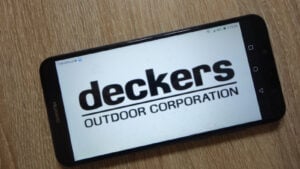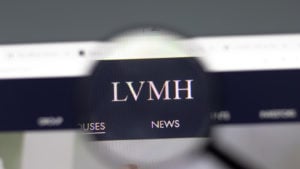“We’re showcasing the companies around the world that are leveraging creativity in order to drive business and make the world a better place. What do we mean by creativity? Ingenuity. Innovation. Originality. Fearlessness,” GQ’s Alex Hoyt and Jaimie Ding wrote on March 27.
Of the companies on the list, I believe 11 of them are listed on a stock exchange in the U.S. or elsewhere.
The names on the list I won’t recommend include Tesla (NASDAQ:TSLA), Prada (OTCMKTS:PRDSY), Nintendo (OTCMKTS:NTDOY), Apple (NASDAQ:AAPL) and Microsoft (NASDAQ:MSFT). That’s three from Magnificent Seven and two other popular consumer brands.
The three names that I’m going with are great creators, but also brilliant business operators, whose shares will go up more often than down over the long haul.
New York Times Co. (NYT)

Having worked in the publishing industry for over a decade, I marvel at how the New York Times Co. (NYSE:NYT) has managed to survive €” and even thrive €” while so many news outlets have gone belly up.
“We think the Times should be the essential subscription for every curious English-speaking person around the world,” NYT Chief product officer Alex Hardiman told GQ.
Full disclosure: I subscribe to the Times. While it’s primarily for my work endeavors, I do enjoy all the arts and leisure coverage, and we can’t forget the puzzles. But most importantly, as Hoyt and Ding wrote, it earns over $2 billion from its 10 million customers.
However, beyond some headline numbers, I know very little about the company founded by Henry Jarvis Raymond and George Jones in 1851. In 1896, Adolph S. Ochs acquired the paper for $75,000.
He and his grandson, Arthur Ochs Sulzberger, who was publisher for nearly 30 years, from 1963 to 1992, made the paper the respected publication it is today.
Due to the dual-class share structure, the company is controlled by the Ochs-Sulzerger Trust.
Importantly, its adjusted operating profit margin in Q1 2024 was 12.8%, 320 basis points higher than a year ago.
Deckers Outdoor (DECK)

Deckers Outdoor (NYSE:DECK) is one of my favorite companies, primarily because of its Hoka performance running shoes, not its UGG brand shoes.
In August 2022, I suggested that Deckers ought to split its stock to increase its liquidity and share count. At the time, it traded around $326. It’s now trading nearly $1,000. When Hoka was acquired in 2013, management thought the brand’s revenues might be able to hit $100 million some day.
In late May, it reported Q4 2024 results. Hoka’s revenues in the fourth quarter alone were $533 million. For the entire year they were $1.81 billion, 18x the company’s goal a decade ago.
“Now, in addition to winning over athletes (Hoka is the official shoe of Ironman Triathlons), the brand is hot with the fashion set €”they’re doling out buzzy collabs with streetwear darlings Brain Dead and lining the shelves of boutiques like Nepenthes in New York and The Broken Arm in Paris,” GQ reported.
If Nvidia (NASDAQ:NVDA) can do a 10-for-1 split, Deckers should too. It’s a keeper.
LVMH (LVMUY)

Bernard Arnault €” the CEO of LVMH (OTCMKTS:LVMUY) and the world’s third-wealthiest person with a net worth of $199 billion €” took a big risk in 1984, buying Christian Dior’s bankrupt parent, Boussac, for $60 million. $15 million of that came from his family’s construction business, and $45 million from Lazard Frères, a French financial institution.
He then went and cut 9,000 workers from the payroll, sold off non-core businesses for $500 million, and made Dior the foundation of his luxury empire.
“In the 90s, I had the idea of a luxury group and at the time I was very much criticized for it. I remember people telling me it doesn’t make sense to put together so many brands. And it was a success … And for the last 10 years now, every competitor is trying to imitate, which is very rewarding for us. I think they are not successful but they try,” Arnault told CNBC in 2018.
As GQ points out, LVMH has moved beyond luxury fashion into luxury experiences such as its work with Accor (OTCMKTS:ACCYY) to build the Orient Express brand, which will include future hotels, trains and sailing ships.
LVMH currently offers luxury experiences and hospitality through its Belmond brand, which it acquired for $3.2 billion, including the assumption of debt, in 2019.
It’s an amazing business.
On the date of publication, Will Ashworth did not have (either directly or indirectly) any positions in the securities mentioned in this article. The opinions expressed in this article are those of the writer, subject to the InvestorPlace.com Publishing Guidelines.
Will Ashworth has written about investments full-time since 2008. Publications where he’s appeared include InvestorPlace, The Motley Fool Canada, Investopedia, Kiplinger, and several others in both the U.S. and Canada. He particularly enjoys creating model portfolios that stand the test of time. He lives in Halifax, Nova Scotia.
